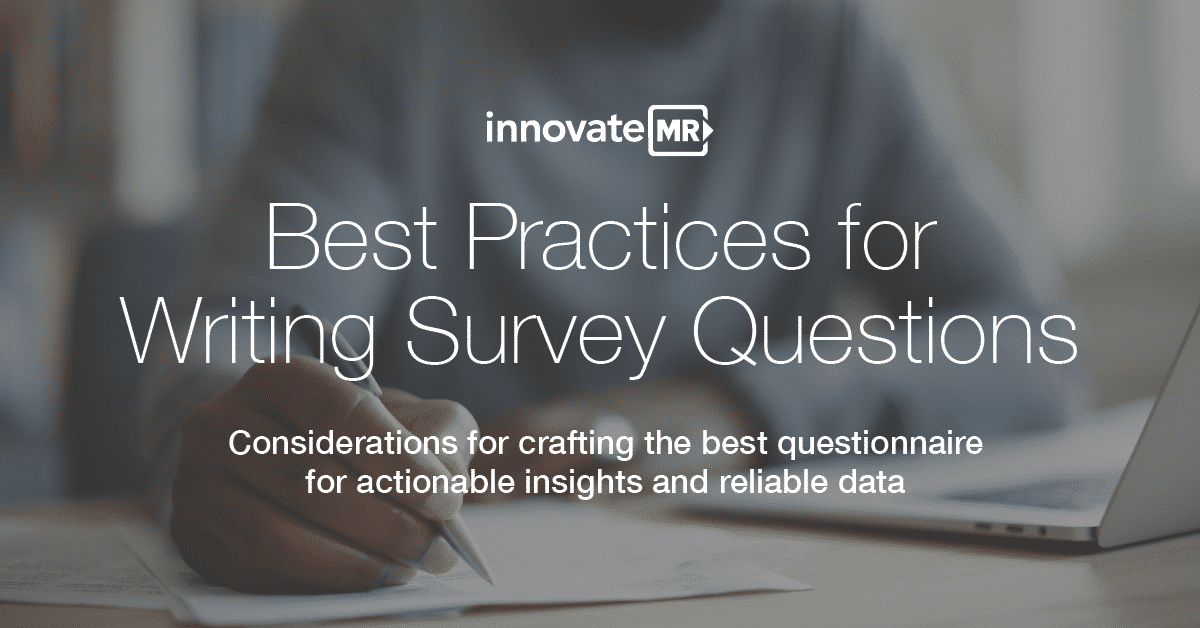Real People. Quality Data. Faster Answers.
Real people answering your business questions for better data-driven decisions.

The Right Solution For You
The InnovateMR Difference
Read About Us
Explore Our Services
Sampling
Our agile approach to sampling means faster, better-quality responses. We introduced the first online panels with unique recruitment programs to find hard-to-reach audiences across the globe. Today, our clients access millions of verified survey takers through our proprietary panel.
Discover SamplingB2B Qualitative Research
Though our expert network, Ivy Exec, leverage top resume-vetted executives around the world for in-depth qualitative research.
Discover B2B QualitativeSurvey Programming & Hosting
We do the heavy lifting so you can focus on what’s important—delivering insights to your clients. Our dedicated survey programming team is available to you 24/7, even during the holidays, to ensure you can monitor the real-time reporting of your project.
Discover Survey Programming & HostingConsulting
From designing the survey to sifting through data, our consultants can guide your research. They have industry-specific knowledge and connections that will help you mitigate risk, overcome challenges, and confirm that your methodology is correct.
Discover Consulting

